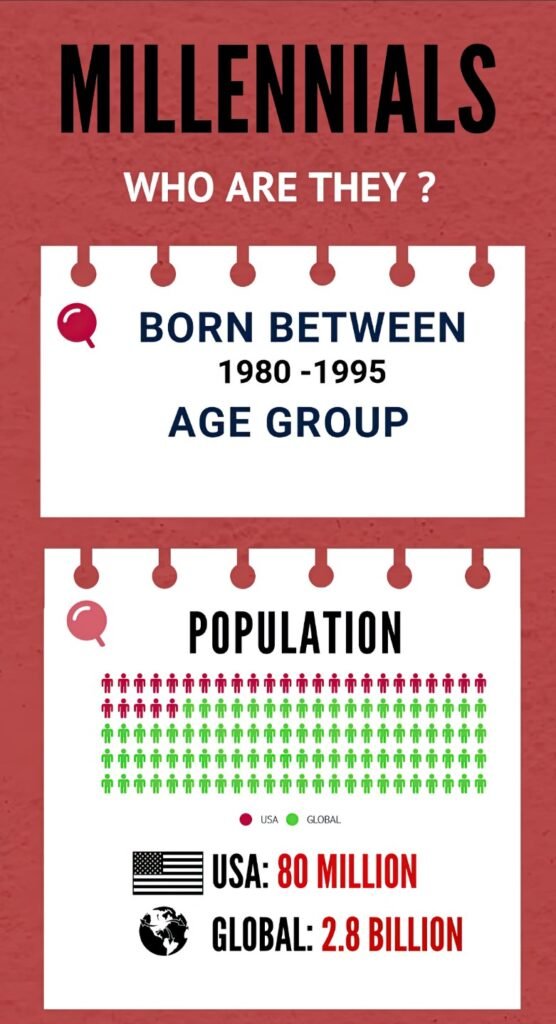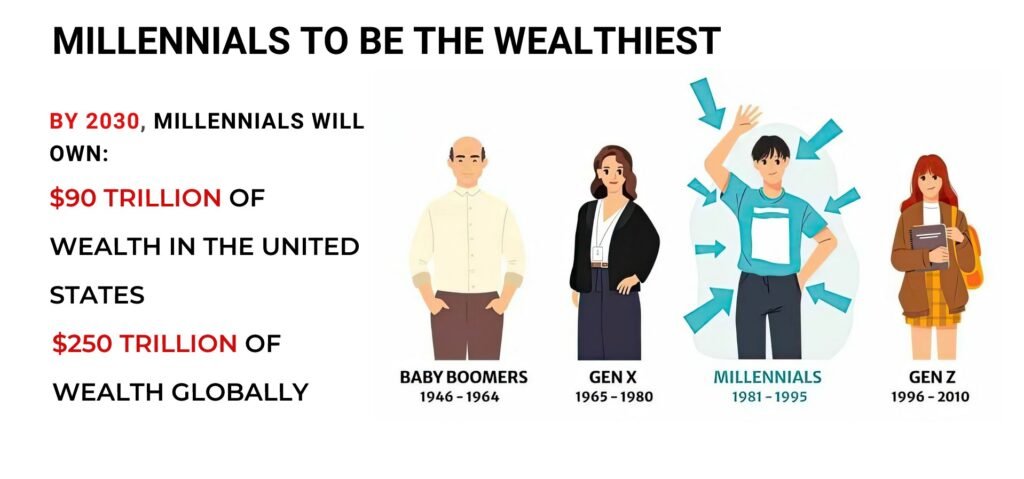Millennials, the generation born between 1981 and 1996, have often been portrayed as struggling, indebted, and disillusioned with the economic and social status quo. However, a new report by Knight Frank, a global real estate consultancy, suggests that this narrative is about to change dramatically.

According to the report, over the next 20 years, millennials will inherit a massive amount of wealth and assets from their parents and grandparents, mainly from property and equity. This wealth transfer, estimated at $90 trillion in the US alone, will likely make millennials ‘the richest generation in history’.
You Can Also Read: IS AI FASHION INCLUSIVE OR PROBLEMATIC?
What are the Key Factors behind Wealth Transfer?
The wealth transfer is driven by two main factors: the aging and mortality of the older generations, and the accumulation and appreciation of assets over time. The older generations, namely the silent generation (born between 1928 and 1945) and the baby boomers (born between 1946 and 1964), have amassed significant wealth and property over their lifetimes, benefiting from economic growth, rising incomes, and favorable tax policies. As they age and pass away, they will leave behind a large amount of inheritance to their children and grandchildren, who are mostly millennials.

According to Knight Frank, the US will see the largest intergenerational wealth transfer in history, with $90 trillion of assets moving between generations over the next two decades. Other countries, such as the UK, Canada, Australia, and Japan, will also experience substantial wealth transfers, albeit on a smaller scale. The report estimates that the global wealth transfer will amount to $250 trillion by 2030.
How have Millennials Contributed to their Own Wealth?
While millennials are poised to receive a huge windfall from their elders, they have also contributed to their own wealth creation through their education, skills, and spending habits. Millennials are the most educated generation, with one-third of them having at least a bachelor’s degree.
They have also leveraged technology and innovation to create new businesses, products, and services, often disrupting traditional industries and markets. Some examples of successful millennial entrepreneurs include Mark Zuckerberg, founder of Facebook; Brian Chesky, co-founder of Airbnb; and Jennifer Hyman, co-founder of Rent the Runway.
Millennials have also shown prudence and responsibility in managing their finances, despite facing challenges such as student debt, rising living costs, and stagnant wages. They have less credit card debt and car purchases than previous generations, and more than half of them have a savings account. They are also more likely to use alternative payment methods, such as buy now, and pay later, which allow them to spread the cost of purchases over time without incurring interest or fees.
Moreover, millennials have different spending priorities and preferences than older generations. They tend to value experiences over material possessions and spend more on travel, dining out, and entertainment. They also care more about social and environmental causes and are willing to pay more for brands that align with their values and ethics. These spending habits reflect their lifestyle choices and aspirations, as well as their awareness and concern for the world around them.
What does the Future hold for Millennials?
The future of millennials seems bright, as they are set to become the dominant force in the economy and society. With their wealth and influence, they will be able to shape the direction and pace of change and address the challenges and opportunities that lie ahead. They will also have more freedom and flexibility to pursue their passions and interests and to enjoy a higher quality of life.
However, the wealth transfer also comes with responsibilities and risks. Millennials will have to manage their inheritance wisely and plan for their long-term financial security and retirement. They will also have to deal with the implications of the wealth transfer on the distribution and inequality of wealth, both within and across generations. They will have to balance their own needs and wants with those of their families and communities, and with the sustainability and well-being of the planet.
The wealth transfer is a historic and unprecedented event that will have profound and lasting impacts on the economy and society. Millennials are at the center of this transformation and have the potential to become the richest and most influential generation in history. How they use their wealth and power will determine the world’s future.


